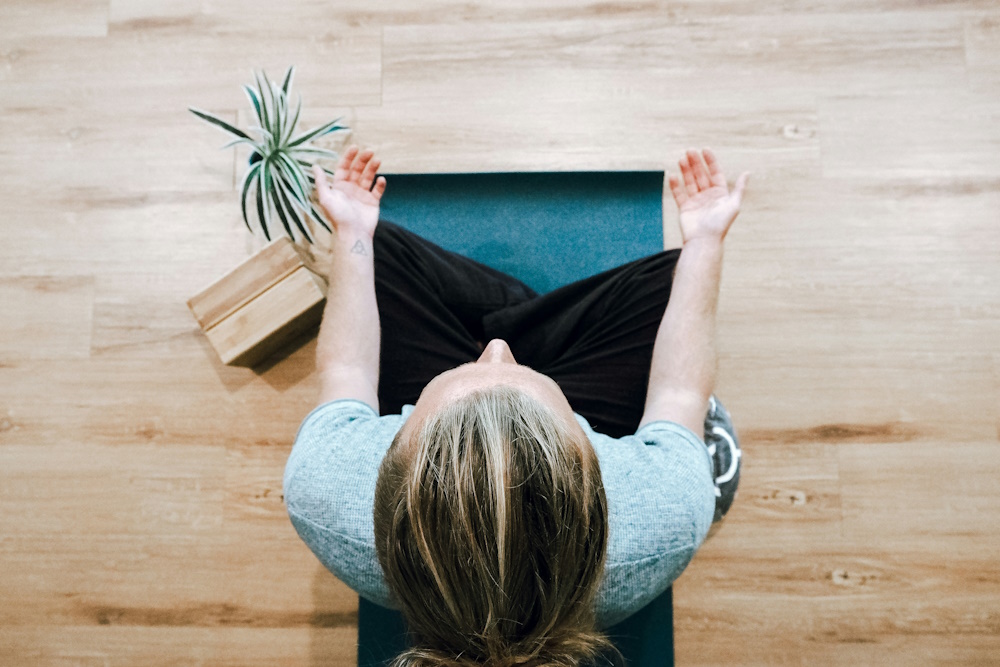Mindfulness meditation for Pilates is a powerful combination that brings together the mental and physical aspects of well-being. In this comprehensive guide, we will explore the concept of mindfulness meditation within the context of Pilates, clarify what mindfulness Pilates entails, discuss whether Pilates can be considered a mindfulness practice, explore the possibility of meditating while doing Pilates, and uncover how Pilates naturally promotes mindfulness.
What is mindfulness Pilates?
Mindfulness Pilates is a practice that combines the core principles of Pilates with mindfulness meditation techniques. It encourages individuals to be fully present in the moment during their Pilates practice, fostering a deep mind-body connection. Mindfulness Pilates emphasizes:
• Awareness: Paying conscious attention to the sensations in your body, your breath, and the movements you are performing during Pilates exercises.
• Breath Coordination: Syncing your breath with each movement to create a sense of flow and mindfulness.
• Presence: Letting go of distractions and focusing your attention solely on the Pilates practice, cultivating a meditative state of mind.
• Mind-Body Connection: Developing a heightened awareness of how your body moves and responds to the exercises, promoting a sense of unity between your mind and body.
Is Pilates a mindfulness practice?
While Pilates is primarily a physical fitness practice, it can certainly be a mindfulness practice when approached with intention and awareness. Pilates encourages mindfulness in various ways:
• Conscious Movement: Pilates exercises require precise and controlled movements, which naturally draw your attention to your body’s alignment, balance, and coordination.
• Breath Awareness: The emphasis on coordinated breathing enhances mindfulness by synchronizing your breath with your movements.
• Focused Attention: Pilates demands concentration, as you need to be fully present to execute exercises correctly. This focused attention aligns with mindfulness principles.
• Stress Reduction: Pilates exercises promote relaxation and reduce stress, fostering a calm and mindful state of mind.
• Mind-Body Connection: Pilates encourages you to be in tune with your body’s sensations, helping you develop a stronger mind-body connection.
Can you meditate while doing Pilates?
Yes, you can incorporate meditation into your Pilates practice, creating a mindful and meditative experience. Here are steps to meditate while doing Pilates:
1. Set an Intention: Begin your Pilates session with a clear intention for your practice, such as “cultivating mindfulness” or “deepening my mind-body connection.”
2. Focus on Breath: Pay close attention to your breath throughout the practice. Coordinate your inhales and exhales with your movements, creating a rhythm that centers you in the present moment.
3. Silent Mantra: Choose a word or phrase that resonates with you, such as “peace” or “awareness.” Mentally repeat this mantra as you perform each exercise, allowing it to anchor your attention.
4. Mindful Sensations: Notice the sensations in your body as you move. Be aware of the stretch, contraction, and release of muscles. Feel the connection between your breath and movement.
5. Non-Judgment: Approach your Pilates practice with non-judgmental awareness. Let go of self-criticism and embrace self-acceptance.
6. Mindful Transitions: Pay attention to the transitions between exercises. Use these moments to deepen your mindfulness and bring your awareness to the present.
How does Pilates promote mindfulness?
Pilates naturally promotes mindfulness through its core principles and practices:
• Breath Awareness: Coordinating breath with movement encourages you to stay present and engaged with each exercise.
• Controlled Movement: Pilates emphasizes controlled, precise movements that require focused attention and mindfulness.
• Mind-Body Connection: Pilates fosters a strong mind-body connection by promoting awareness of body alignment, muscle engagement, and movement quality.
• Stress Reduction: Pilates exercises can reduce physical and mental tension, facilitating a calm and centered state of mind.
• Concentration: Pilates demands concentration and mental engagement, helping you stay in the moment.
Summarizing Mindfulness Meditation for Pilates
In summary, mindfulness meditation for Pilates is a transformative practice that combines the physical benefits of Pilates with the mental and emotional benefits of mindfulness meditation. Mindfulness Pilates involves being fully present, coordinating breath with movement, and developing a deep mind-body connection. While Pilates is primarily a physical practice, it can be a mindfulness practice when approached with intention and awareness. You can incorporate meditation techniques into your Pilates practice, enhancing your overall well-being. Pilates promotes mindfulness through its emphasis on breath awareness, controlled movement, mind-body connection, stress reduction, and concentration. Ultimately, the fusion of mindfulness and Pilates can lead to a more profound and holistic experience of both practices, nurturing physical fitness and inner peace.
